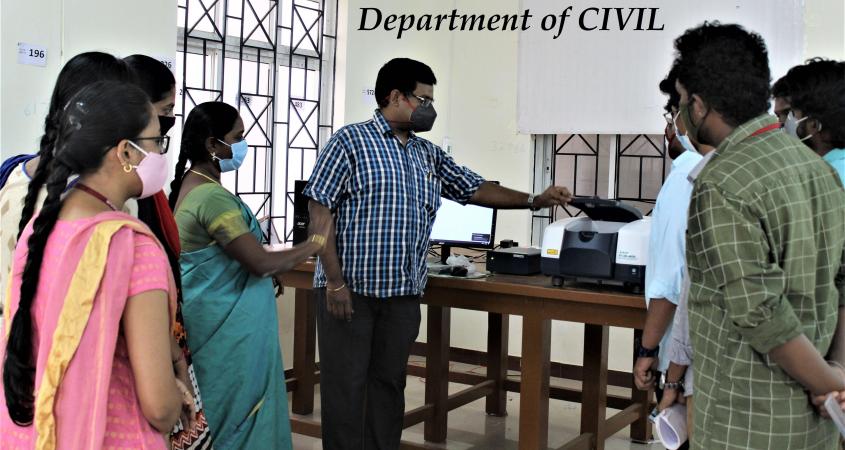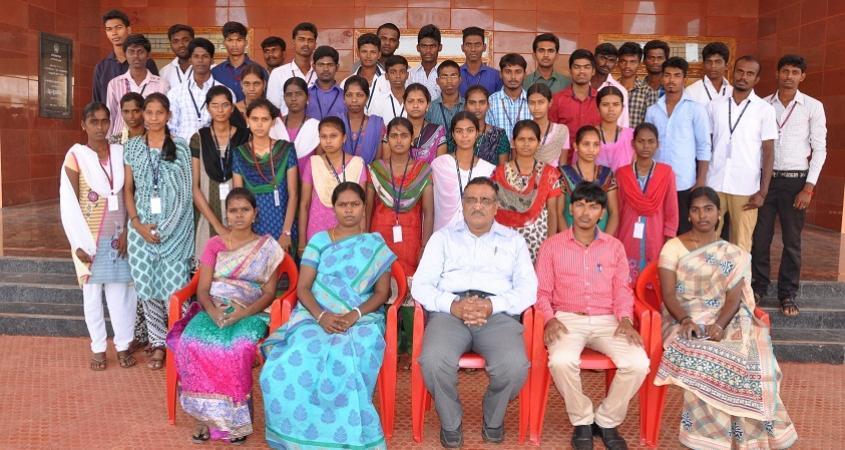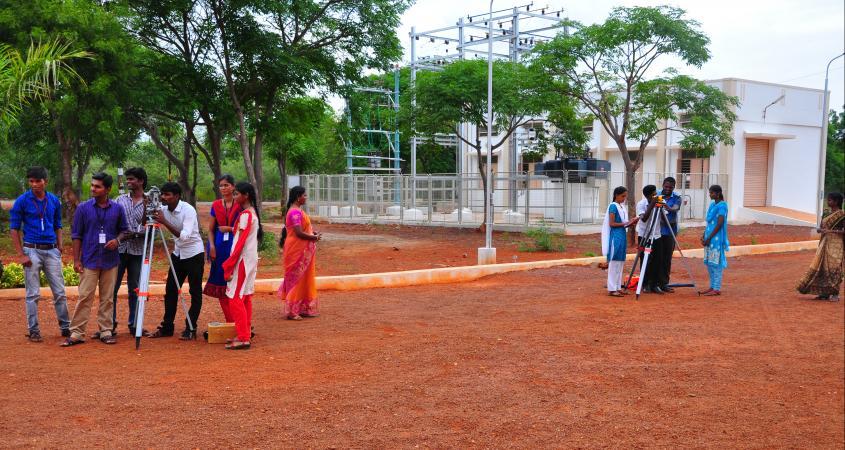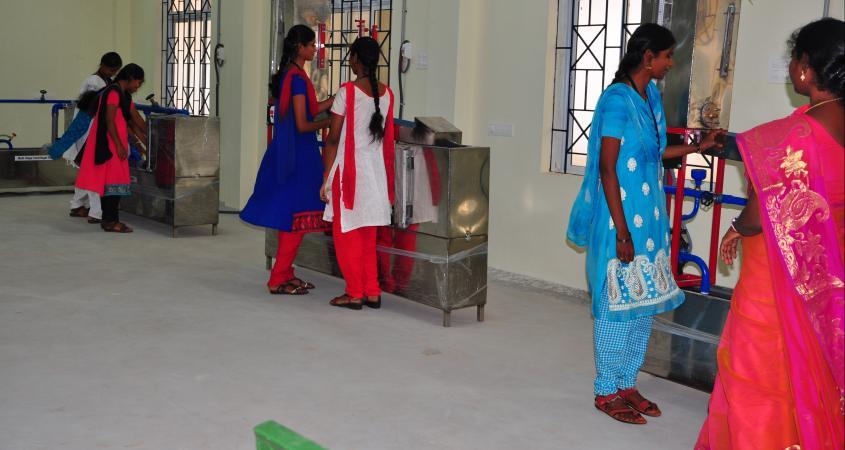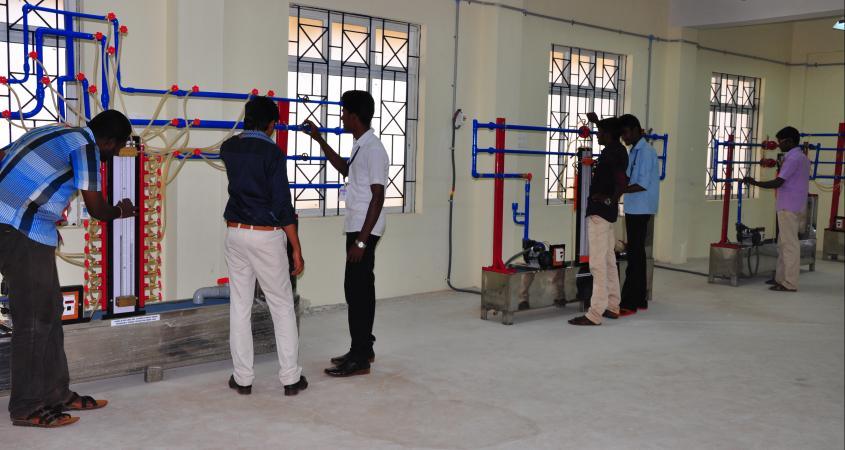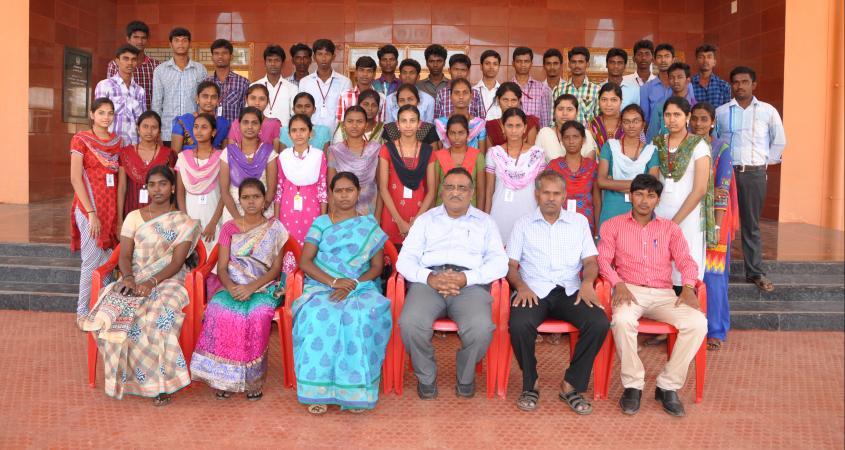PEO's
- PEO1 - Apply the engineering knowledge acquired effectively and stay in the forefront throughout the professional life.
- PEO2 - Capable to analyse, design, construct, maintain and rehabilitate all civil engineering structures without compromising on monetary, environmental, ecological and social responsibility.
- PEO3 - Ability to identify, acquire, generate, understand and process experimental data through model making and testing and develop mathematical models related to real life problems in Civil engineering and allied areas through professional practice.
- PEO4 - Ability to function seamlessly in multi-disciplinary teams with team spirit, exhibiting ethical values, social obligations and responsibilities for the betterment of society.
PO
- Engineering Knowledge: Apply the knowledge of mathematics, science, engineering fundamentals, and an engineering specialization to the solution of complex engineering problems.
- Problem Analysis: Identify, formulate, review research literature, and analyse complex engineering problems reaching substantiated conclusions using first principles of mathematics, natural sciences, and engineering sciences.
- Design/development of solutions: Design solutions for complex engineering problems and design system components or processes that meet the specified needs with appropriate consideration for the public health and safety, and the cultural, societal, and environmental considerations.
- Conduct investigations of complex problems: Use research-based knowledge and research methods including design of experiments, analysis and interpretation of data, and synthesis of the information to provide valid conclusions.
- Modern tool usage: Create, select, and apply appropriate techniques, resources, and modern engineering and IT tools including prediction and modelling to complex engineering activities with an understanding of the limitations.
- The engineer and society: Apply reasoning informed by the contextual knowledge to assess societal, health, safety, legal and cultural issues and the consequent responsibilities relevant to the professional engineering practice.
- Environment and sustainability: Understand the impact of the professional engineering solutions in societal and environmental contexts, and demonstrate the knowledge of, and need for sustainable development.
- Ethics: Apply ethical principles and commit to professional ethics and responsibilities and norms of the engineering practice.
- Individual and team work: Function effectively as an individual, and as a member or leader in diverse teams, and in multidisciplinary settings.
- Communication: Communicate effectively on complex engineering activities with the engineering community and with society at large, such as, being able to comprehend and write effective reports and design documentation, make effective presentations, and give and receive clear instructions.
- Project management and finance: Demonstrate knowledge and understanding of the engineering and management principles and apply these to one’s own work, as a member and leader in a team, to manage projects and in multidisciplinary environments.
- Life-long learning: Recognize the need for, and have the preparation and ability to engage in independent and life-long learning in the broadest context of technological change.
PSO
- PSO1 - UNDERSTANDING: Graduates will have an ability to describe, analyse and solve problems using mathematics and systematic problem-solving technique.
- PSO2 - ANALYTICAL SKILL: Graduates will have an ability to plan, execute, manage, maintain and rehabilitate civil engineering systems and processes.
- PSO3 - EXECUTIVE SKILL: Graduates will have an ability to interact and work seamlessly in multi-disciplinary teams.
- PSO4 - RESPONSIBILITY: Graduates will have requisite understanding on impact of civil engineering projects and processes in a global, economic and societal context.

